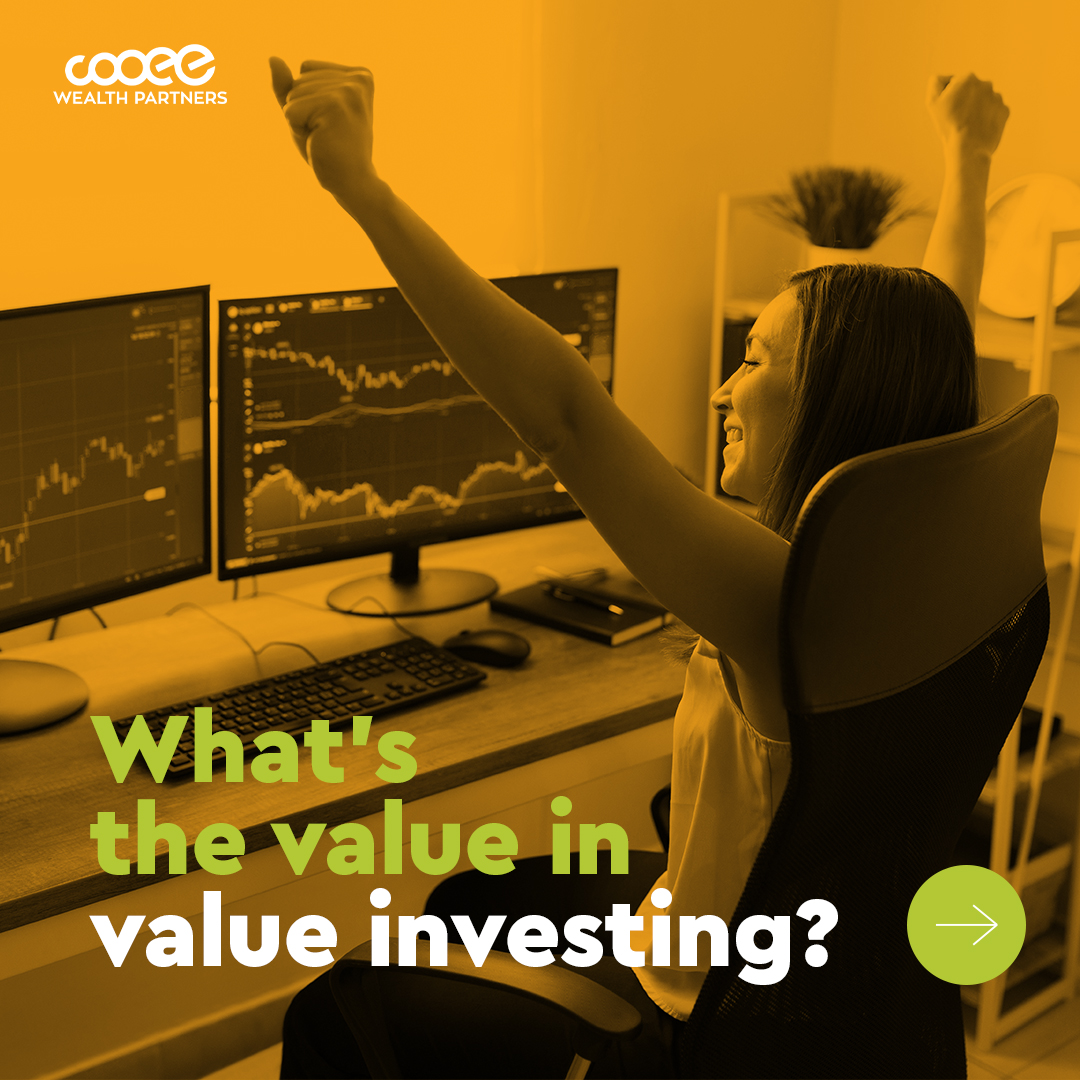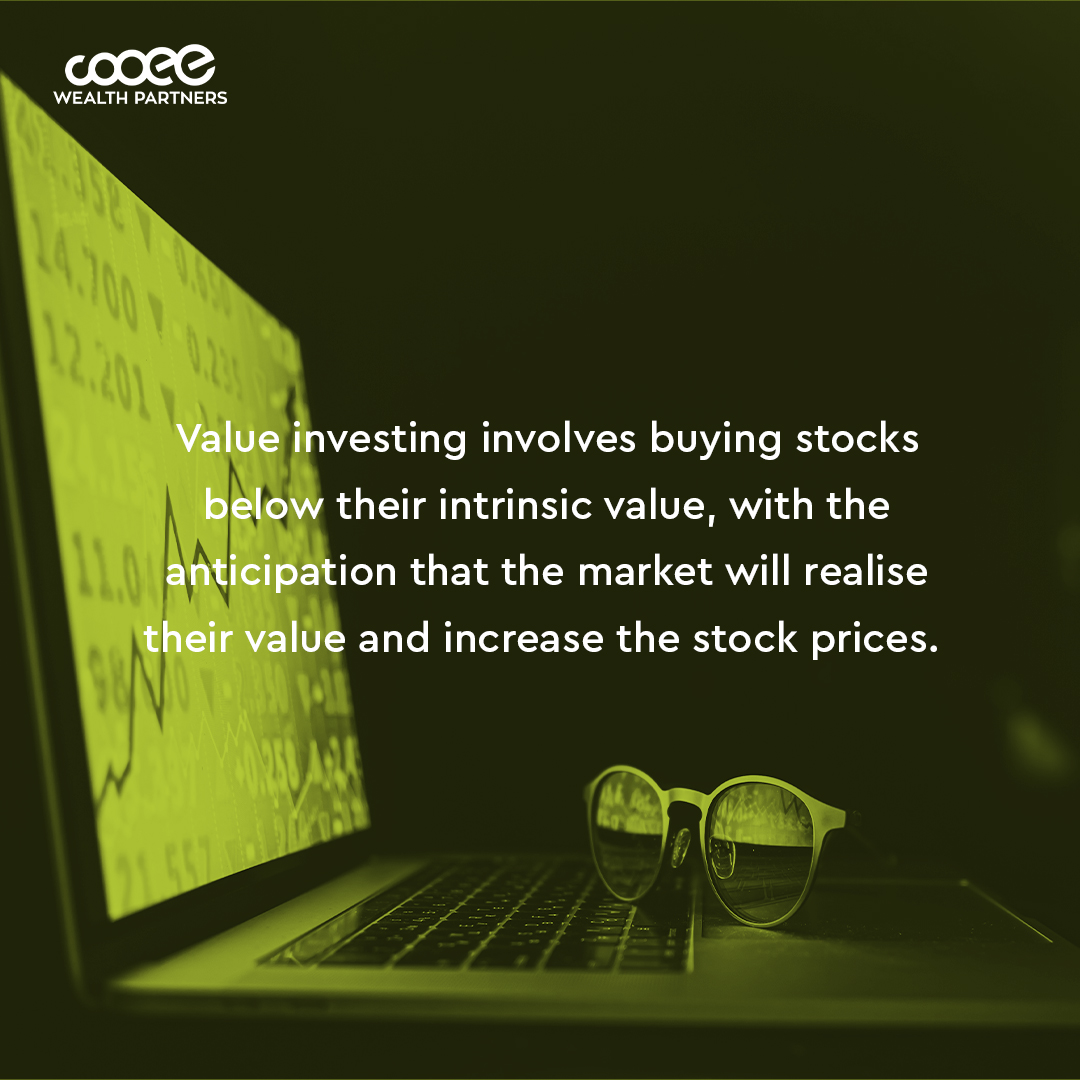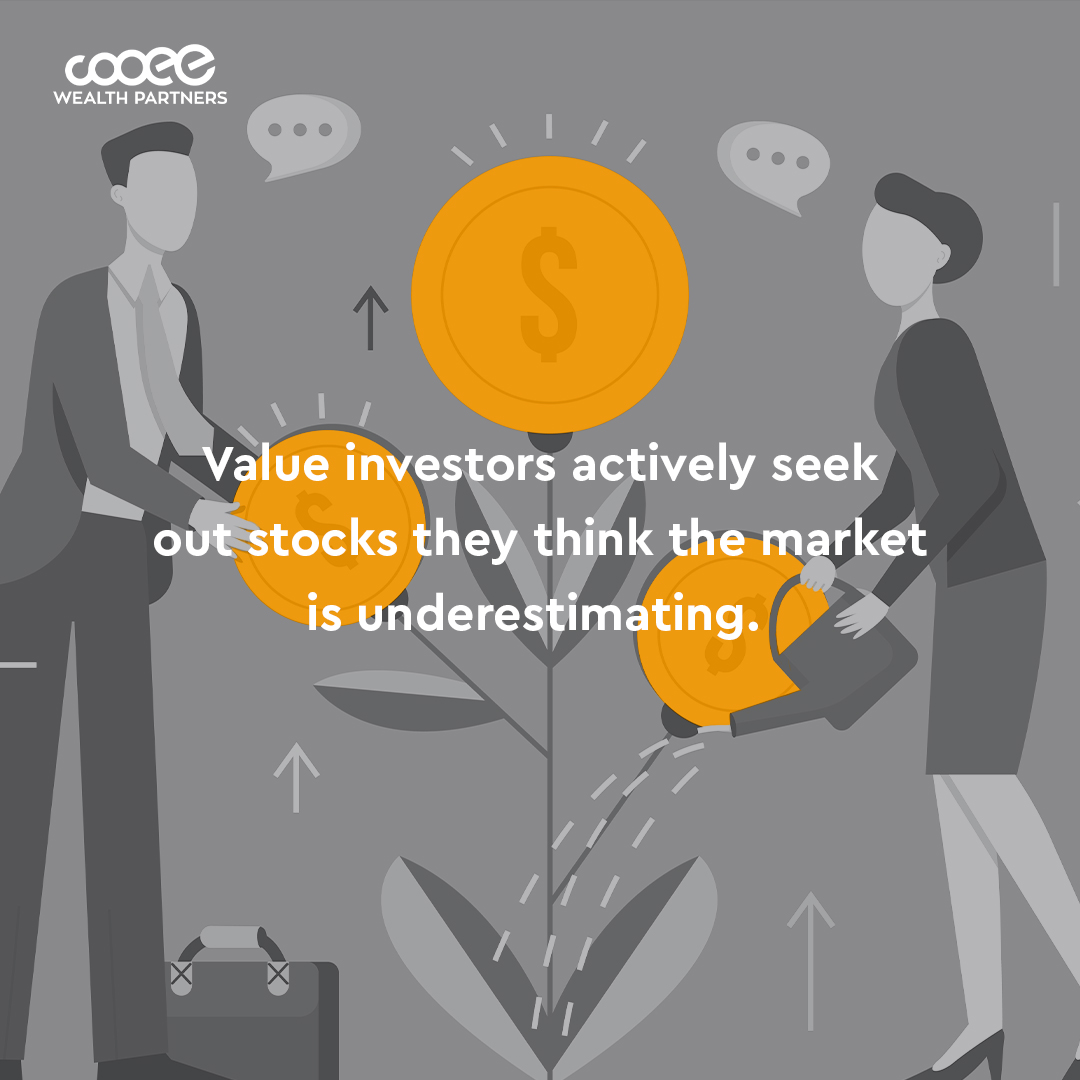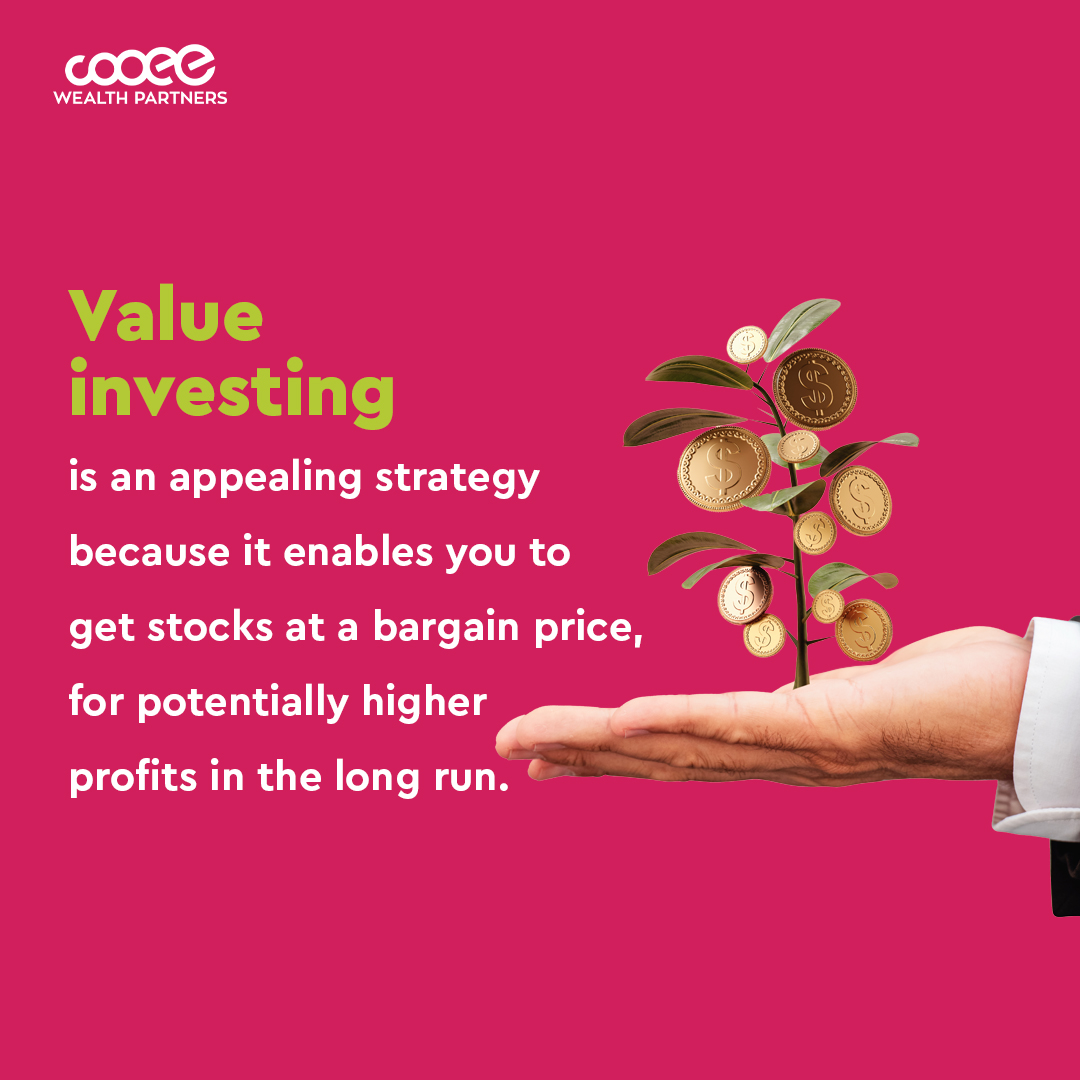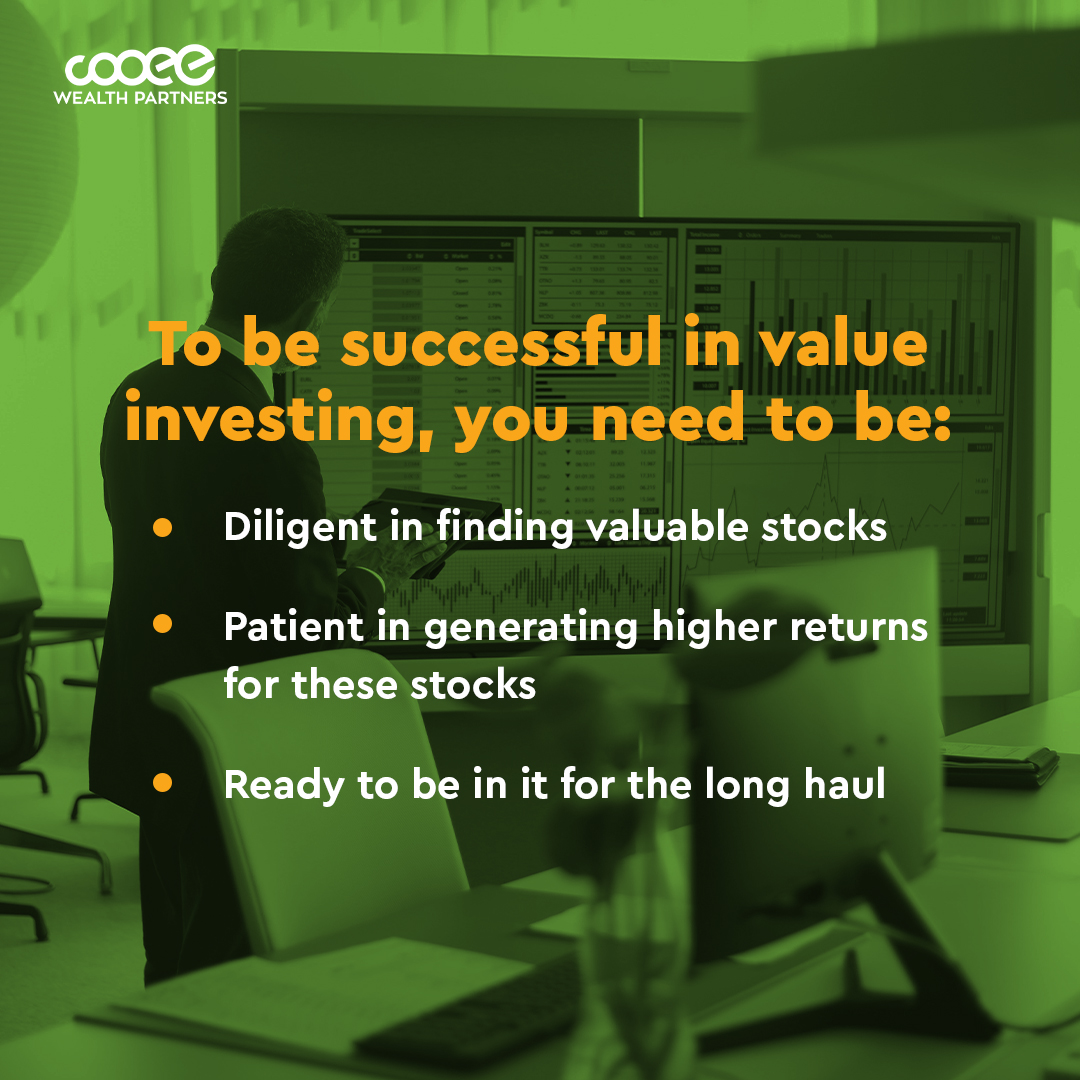
Value investors are like trendsetters in the investing world. As the name suggests, they see the value in specific assets before anyone else does. And by the time that everyone else catches on, they’re already hunting for the next diamond in the rough.
They’re not blinded by the “popular” stocks or the latest shiny asset in the market, though. Value investors are focused on the long-term company fundamentals of their investments, which may not always be aligned with the current stock price movements. This enables value investors to purchase stocks at discounted prices, with the aim that prices will go up as markets realise the value of their investments.
This may have you thinking, “Maybe I’d like to be a value investor.” If so, then keep reading this article because it’s for you.
Morningstar describes value investing as buying stocks that are overlooked, even unloved, trading below their intrinsic value, with the anticipation that markets will realise this and the price will go up.
This is believed to be less volatile and better performing in the long term than growth-driven investing, which is typically focused on companies that are expected to grow faster, and where demand often drives up the price.
So, now the question is, how do value investors make sure that their value investments are any good?
It doesn’t involve a crystal ball, for sure, and it’s not as random as you may think. Like any type of investing, it involves a lot of planning, strategy and effort that goes into building an effective investment portfolio. Being successful in value investing requires a deep understanding of investing fundamentals, which includes reviewing the company’s financial profile of a particular investment, including its price and profitability.
By understanding how value investing works, you can identify if it’s the right investment approach for you.
What is value investing?
A lot of successful investors use value investing, including Warren Buffet, Benjamin Graham and Seth Klarman — and for good reason.
Investopedia defines value investing as a strategy that involves picking stocks that appear to be trading for less than their intrinsic or book value.
Imagine buying a new refrigerator. Whether you buy at full price or on a sale, you will still get the same product with the same quality and features. The same goes for stock prices. A company’s valuation remains the same even as its share price goes through highs and lows in time.
Everyone would rather buy the refrigerator at a discounted price rather than its full price. In the same way, the savvy value investor will go to lengths to get stocks at lower prices.
Value investors actively seek out stocks they think the stock market is underestimating. In this regard, you can say that value investors are contrarians; they don’t believe in the efficient market hypothesis (i.e. stock prices take all information about a company into account).
There are a few reasons that stocks may be undervalued or overlooked:
- Herd mentality – The unadvised and inexperienced investor will often invest based on their biases instead of investment fundamentals. Their investment decisions can be swayed by their aversion to loss or their fear of missing out, based on how the market is moving. By following the rest of the herd (and the market’s current movement), these investors can miss out on hidden or overlooked opportunities.
- Cyclicality – Companies will inevitably go through ups and downs, whether that’s because of the seasonality or their target consumer’s evolving needs. This can affect the company’s stock price, but not necessarily its long-term value.
- Unglamorous stocks – These are stocks that won’t automatically be picked up by the market, so it’s not going to be on most people’s radars. This can include small-cap stocks or even foreign stocks.
Value investors look past these challenges and diligently search for stocks and assets that they believe will contribute to the overall achievement of their own investment goals.
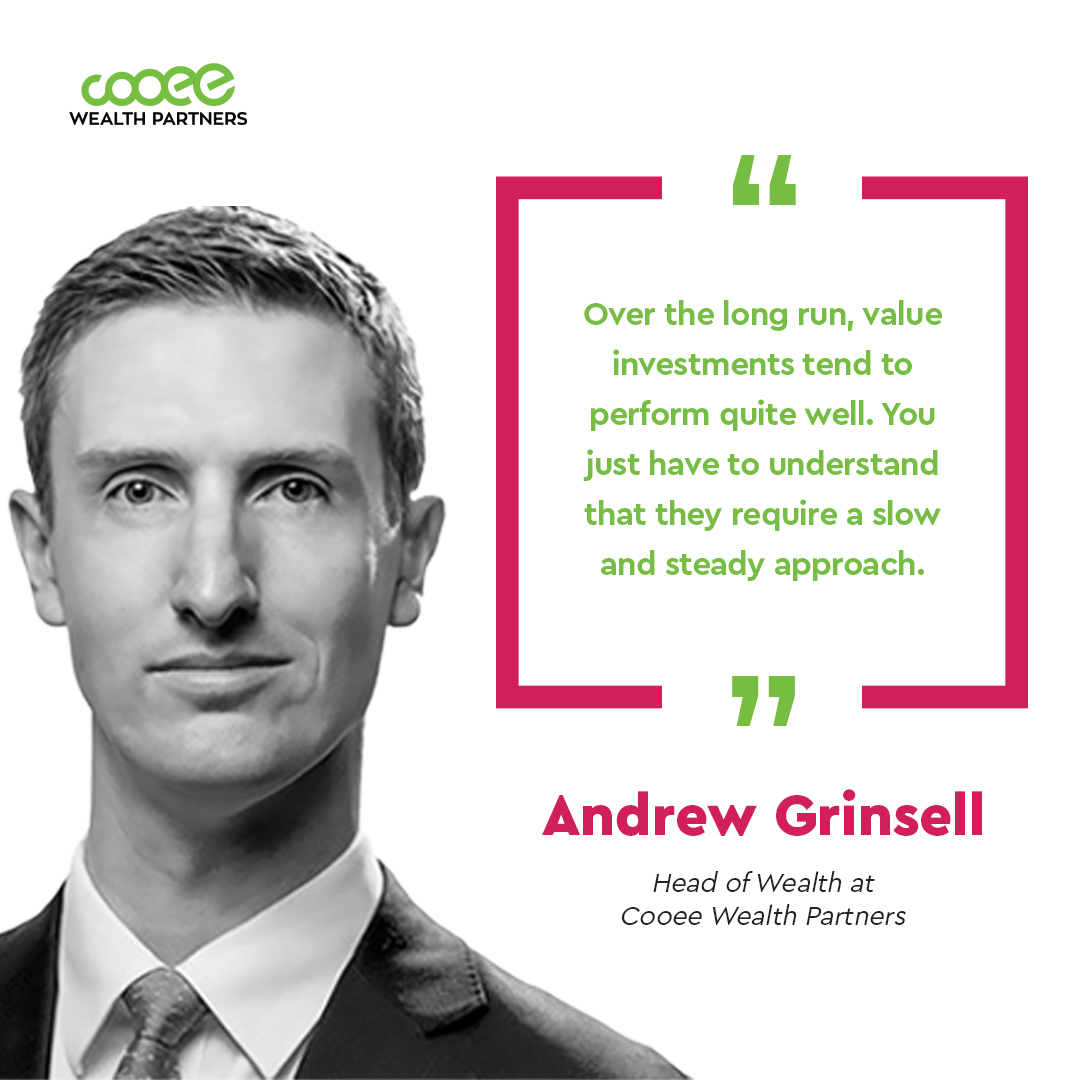
Is value investing right for you?
Value investing can be appealing because it enables you to get stocks at a bargain price. Buying at a discounted price can get you higher profits in the long term.
However, being successful in value investing requires patience and strategic planning. You need to look through the market with a fine-toothed comb to find stocks that have value (instead of one that just looks like it does).
Value investments perform quite well, it just takes time for these stocks to get repriced at a higher level. So it’s important to remember that value investing requires a slow and steady approach.
Keep in mind that you’re going into value investing not because of what you think the stock will be worth in one or six months. You’re buying stocks based on a five to 10-year investment time frame. Don’t expect the shares to double overnight, you need to be comfortable with setting those stock certificates aside for years at a time.
Using dynamic asset allocation (DAA) for value investing
You need to establish your asset allocation method if you want to be successful in value investing. There are typically three methods of asset allocation you can choose from, depending on what you want for your portfolio management:
- Strategic Asset Allocation (SAA) – Changes are made infrequently and are generally small. Under SAA, investors must be prepared to hold and, worse still, buy manifestly overpriced assets.
- Tactical Asset Allocation (TAA) – This method is generally about making decisions about short-term price moves over a period that may vary from one to 18 months, which means it is crucially dependent on correctly timing both the entry and exit.
- Dynamic Asset Allocation (DAA) – This is essentially a long-term strategy but unlike SAA, it is not blind to valuation excesses. DAA is all about investing in reasonably priced assets and most importantly, avoiding investment in overpriced assets.
Cooee Wealth Partners uses DAA for our clients: our investment philosophy is centred around removing the guesswork of investing with the services we provide.
Dynamic Asset Allocation is all about moving ahead of events, sometimes up to two to three years in advance of an event occurring – and as such, DAA is not dependent on correctly timing either the entry or the exit to a position. This is the most optimal method for identifying and choosing effective value investments.
We can do the heavy lifting when it comes to researching and identifying the right value investments that will work well in your portfolio and contribute to your overall goals. Just remember that, while value investing is a strategy that can help you achieve long-term positive returns, you must be patient as an investor.
Book a call with one of our Wealth Partners and we will help you leverage value investing to your advantage.

